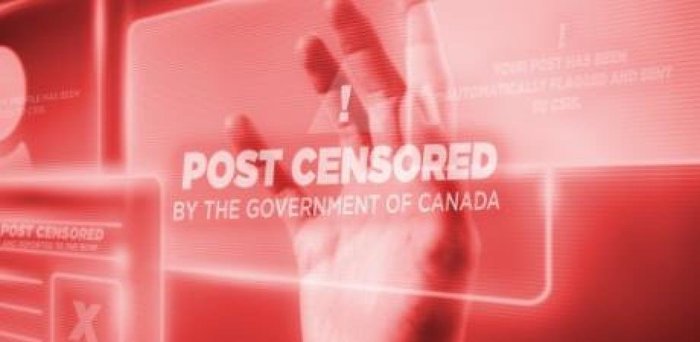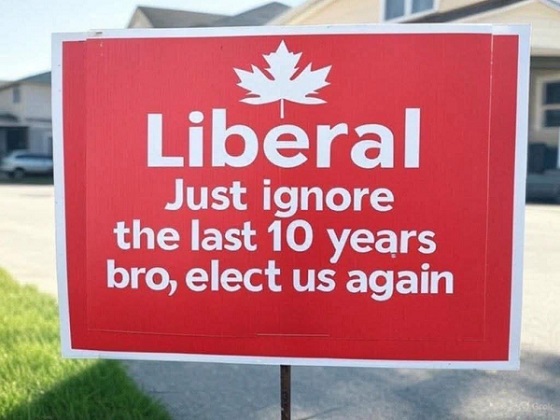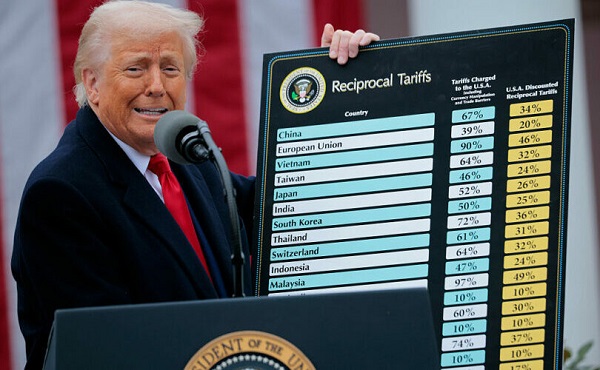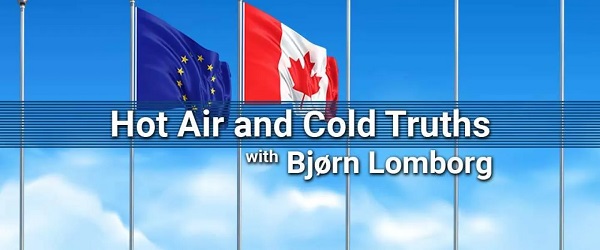Bruce Dowbiggin
Canada’s Great Artists Don’t Need Trudeau’s CRTC To Succeed

“I know who the gatekeepers are. They are still here, telling us in Bill C-11 that we have progressed, that we are more understanding and that our value system has evolved to be inclusive. This statement is a transparent endowment to those whose support they need and whom they desire to influence, but it is a terrible insult to the great writers in my country that I know.” —David Adams Richards
One of the gratifications in writing is finding someone who can express your feelings in a superior fashion. Even more gratifying is when a friend finds the perfect expression of those thoughts. Imagine my happiness to see my old friend David Adams Richards—raconteur, novelist and cranky Canadian loyalist— take the floor in the Senate to defenestrate the execrable Bill C-11. (His prior work helped capsize C-10)
So please forgive us if we quote liberally from his January speech in the upper chamber on the attempt to turn the CRTC into a national ministry for public enlightenment or the culture section of a Central Committee.
David’s lucid, heartfelt resistance to ceding the power of censorship to the sort of bureaucracy that can’t get you a passport or remove fallen trees from a VIA Rail line is impertinent and necessary. These are the very reasons why he— or those like him who complain— will be among the first targeted when some Ottawa trust-fund plutocrat needs a whipping post to hold off truckers or farmers or whichever “others” come next to the doors of Parliament to make the PM’s acquaintance.

A product of New Brunswick’s Miramichi, Richards knows those “others” the prime minister sought to make non-persons. “I grew up in a place in the east of Canada called the Maritimes and have fought for every inch of soil in my fictional world that, for years, dismissed who I was and especially whom I wrote about.”
From his time jousting with the Canada Council or New Brunswick paper pushers he knows the crushing power of bureaucrats and time servers who will want to make themselves, not the artists, the story. “We have filled the world with our talent, but not because of the Minister of Heritage. We have spread our books and movies across the world, but it is not because of some formula.
“We have insulted so many of our authors, singers, actors and painters by not paying attention to them, and then claiming them when they go somewhere else. They come back to get the Order of Canada and to be feted at Rideau Hall. Drake is known worldwide not because of the Canadian Radio-television and Telecommunications Commission, or CRTC. Thank God Drake was not up to them, or Leonard Cohen or Gordon Lightfoot either.”

This notion of success without a committee is heresy, of course. Particularly in an age where the pews of civil servants are being filled with radicals and quota appointees who see the process, not the outcome, as the point. Twenty years ago the grey suits and time servers on arts panels were often former artists and creators. Now they are virtue-saturated bullies who think the idea of Black Out nights at the theatre represents racial progress.
They, like Mao, believe that unification is achieved through relentless division and struggle “by the socialist system itself”— in other words, under the power and influence of the cult and its doctrine. Artistic expression under C-11 will come to serve the ongoing struggle for a more perfect culture. Those not fitting the prescription will be cast into a snow bank of irrelevance.

Richards hears— and fears— their approach. “I think, overall, we have lately become a land of scapegoaters and finger pointers, offering accusations and shame while believing we are a woke society. Cultural committees are based as much in bias and fear as in anything else. I’ve seen enough artistic committees to know that.”
It was hoped that the gross overreach in the Emergency Measures from this time last year might have swayed Mr. Trudeau and his faculty lounge of compliant stooges from another attempt at locking down more of what was once a liberal, free society. Guess again. Like all good party members and fellow travellers Trudeau’s constituency is elsewhere, not in Canada.
Egged on by the one-world government pep squad the PM believes one flaw disqualifies an entire system. His locked-down mind can’t see that the system flaws he fears so much are in fact the diversity he craves. They signify our vibrancy. He calls it disinformation. “The very bill suggests a favouritism brought forward by a notional knowledge of what Canada should be and what groups we are now allowed to blame.”

Richards concludes, “This is not opening the gate to greatness but only to compliance. The writers I know don’t need to advance to fit an agenda, and neither do the songwriters or bloggers. When this bill mentions how we have evolved, it is simply a suggestion to comply.”
Vive la Resistance C-11.
Sign up today for Not The Public Broadcaster newsletters. Hot takes/ cool slants on sports and current affairs. Have the latest columns delivered to your mail box. Tell your friends to join, too. Always provocative, always independent. https://share.hsforms.com/16edbhhC3TTKg6jAaRyP7rActsj5
Bruce Dowbiggin @dowbboy is the editor of Not The Public Broadcaster A two-time winner of the Gemini Award as Canada’s top television sports broadcaster, he’s a regular contributor to Sirius XM Canada Talks Ch. 167. Inexact Science: The Six Most Compelling Draft Years In NHL History, his new book with his son Evan, was voted the seventh-best professional hockey book of all time by bookauthority.org . His 2004 book Money Players was voted sixth best on the same list, and is available via http://brucedowbigginbooks.ca/book-personalaccount.aspx
Bruce Dowbiggin
Bettman Gives Rogers Keys To The Empire. Nothing Will Change

Good news if you like the way Rogers Sportsnet covers hockey in Canada. You’re about to get a whole lot more of it. In a move that sums up Gary Bettman’s unique broadcast philosophy the NHL has awarded the Canadian TV/ digital/ streaming rights to Rogers for the next 12 years. The price tag? 12 billion U.S. dollars (about $16.B CDN dollars).
While the pattern in modern sports broadcasting rights has been toward sharing the wealth among competing bidders— the NFL has six distinct partners— Bettman the contrarian has opted for a different notion. He’s all in with one Canadian partner, and let his critics STFU.
As opposed to the previous CDN national monopoly awarded to Rogers in 2013 this one bestows national rights in all languages across TV, streaming and digital for all regular-season and playoff games, plus the Stanley Cup Final and all special events. This extends to coverage in all regions. There are some concessions for Rogers to sell limited cutout packages, such as the Monday Night Amazon package they’ve created.
Presuming Pierre Poliievre doesn’t get his way with CBC, Rogers will likely piggyback on their time-sharing agreement for Saturday Hockey Night In Canada to get CBC’s network reach. (There remain many hockey fans who still think CBC has the NHL contract. Go figure.)
Translation: there will be no regional packages for TSN to produce Montreal Canadiens, Ottawa Senators or Toronto Maple Leafs games, for instance. But there will be regional blackouts, because nothing says we are proud of our product like denying it to a larger audience. Conn Smythe would be proud.
At the presser to announce the deal Rogers and Bettman were coy about how much they will charge consumers for the honour of being inundated by content in what now seems likely to be a 36-team league by the time the deal expires. Will costs be added to cable/ satellite packages? How much for streaming? With stories circulating that Rogers massively overbid for the package to get the monopoly it’s apparent that the phone company will be turning over every nickel to make it worthwhile.
Fans are apprehensive and over-saturated with hockey content already. For that reason, the NHL is now desperately looking for ways to lessen the tedium of the 82-game regular schedule with midseason content like the 4 Nations Cup or a World Cup format. In Canada’s hockey-mad environment Rogers will have a passionate market, but even the most fervent fans will only spend so much for their fix.
Already, Rogers is trumpeting its re-acquisition with commercials featuring Ron Maclean doing his breathy feels-like-home voice about how Sportsnet is the natural landing spot for hockey until many of us are dead. Bettman made cooing noises about Rogers’ commitment at the announcement.
But let us cast our minds back to 2013 when the last Rogers/ NHL deal was concocted. We were the sports media columnist at the Mop & Pail at the time and much was made that Rogers would be a technological marvel, re-inventing the way we watched hockey. There would be new camera angles, referee cams, heightened audio, refreshed editorial content etc.

As hockey fans now know Rogers dabbled in the brave new world briefly, blanched at the cost of being creative and largely went back to doing hockey the way it had always been done. Taking no risks. On some regional casts that meant as few as three or four cameras for the action.
But if you were expecting dashboard cameras and drone shots you were sadly disappointed. Similarly there was a brief stab at refreshing the pre-, mid- and postgame content. Hipster George Stromboulopoulos was brought in as a host to attract a larger female audience.
But pretty soon Strombo was gonzo, replaced by the anodyne David Amber (whose dad was once the leader of the journalist union at CBC). Women like former player Jennifer Botterill were brought in to change the gender balance on panels. They then acted pretty much like guys, chalk-talking viewers into numbness. Appointment viewing has become a fallback choice.
The move away for anything controversial came in 2019 with Rogers’ axing of Don Cherry’s Coach’s Corner in a flap over the former coach’s continuing ventures into political or cultural content. Maclean slipped the knife into his meal ticket and continued on the show. After time in limbo, doing location shoots, he was returned full-time to the desk.

As we wrote in June of 2022, the one exception to the standard “serious, sombre, even a touch grim” tone is former defenceman Kevin Bieksa. “Bieksa has been a moveable feast. His insouciance with media has become his ragging on the fellow panelists during intermissions that used to be as much fun as skating in July.” His banter with “insider” Elliotte Friedman is now a lone concession to wit on the show.
Intermissions are numbingly predictable, and Rogers’ stable of analysts and play-by-play announcers outside of HNIC is unchallenging to the orthodoxy of PxP being a radio call over TV pictures. Name one star beside Bieksa that has been produced by Rogers’ “safe” broadcast style since 2013. They’d fit in perfectly in a 1980s hockey broadcast. Now compare it with the lively Amazon broadcasts hosted by Adnan Virk and Andi Petrillo.
This leaves a lingering question. What happens to TSN? Many prefer the editorial and studio profile of TSN on Trade Deadline Day or Free Agent frenzy. TSN locked up its stars such as James Duthie and Bob McKenzie when the last deal was signed. But there isn’t enough live content this time to support keeping a full roster anymore. Who will stay and who will go? (TSN’s president Stewart Johnson is the new commissioner of the CFL).
And with Rogers taking full control of MLSE (Maple Leafs, Raptors, Argos, Toronto FC) TSN is left with the CFL and packages of NFL, golf, tennis, some auto racing and international soccer. Is that enough on which to float a network? There have been rumours that Bell, owner of TSN, is interested in divesting itself of the high cost of sports broadcasting. Should that happen— who has the money to replace them?— the effect will be seismic in Canadian broadcasting.
For now, watch how much pressure the NHL puts on Rogers to up its game. More importantly what will happen when Bettman finally retires and the league has a new vision since 1992? Rogers has sewn up its end. Will the audience go with them?
Bruce Dowbiggin @dowbboy is the editor of Not The Public Broadcaster A two-time winner of the Gemini Award as Canada’s top television sports broadcaster, his new book Deal With It: The Trades That Stunned The NHL And Changed hockey is now available on Amazon. Inexact Science: The Six Most Compelling Draft Years In NHL History, his previous book with his son Evan, was voted the seventh-best professional hockey book of all time by bookauthority.org . His 2004 book Money Players was voted sixth best on the same list, and is available via brucedowbigginbooks.ca.
2025 Federal Election
Will Four More Years Of Liberals Prove The West’s Tipping Point?

The 1997 political comedy Wag The Dog featured a ruling president far behind in the polls engaging Hollywood to rescue his failing ratings. By inventing a fake war against Albania and a left-behind “hero”— nicknamed Shoe— the Hollywood producer creates a narrative that sweeps the nation.
The meme of hanging old shoes from the branches of trees and power lines catches on and re-elects the president. In a plot kicker, the vain producer is killed by the president’s handlers when he refuses to stay quiet about his handiwork. The movie’s cynicism over political spin made it a big hit in the Bill Clinton/ Monica Lewinsky days.

In the recent 2024 election the Democrats thought they’d resurrect the WTD formula to spin off senile Joe Biden at the last minute in favour of Kamala Harris. Americans saw through the obvious charade and installed Donald Trump instead.
You’d think that would be enough to dissuade Canadians who pride themselves on their hip, postmodern humour. But you’d be wrong, they don’t get the joke. Wag The Carney is the current political theatre as Liberals bury the reviled Justin Trudeau and pivot to Mark Carney. If you believe the polling it might just be working on a public besotted by ex-pat Mike Myers and “Canada’s Not For Sale”.
As opposed to Wag The Dog, few are laughing about this performative theatre, however. There are still two debates (English/ French) and over three more weeks of campaign where anything— hello Paul Chiang—can happen. But with Laurentian media bribed by the Libs— Carney is threatening those who stray— people are already projecting what another four years of Liberals in office will mean.
As the most prominent outlier to Team Canada’s “we will fight them on the beaches…” Alberta’s premier Danielle Smith is already steering a course for her province that doesn’t include going to war with America on energy. She asked Trump to delay his tariffs until Canadians had a chance to speak on the subject in an election April 28. Naturally the howler monkeys of the Left accused her of treason. She got her wish Wednesday when Canada was spared any new tariffs for the time being.

Clearly, she (and Saskatchewan premier Scott Moe) have no illusions about Carney not using their energy industry as a whipping post for his EU climate schemes. They’ve seen the cynical flip in polls as former Trudeau loyalists hurry back to the same Liberal party they abandoned in 2024. They know Carney can manipulate the Boomer demographic just as he did when he called for draconian financial methods against the peaceful Truckers Convoy in 2022.
Former Reform leader Preston Manning is unequivocal: “’Large numbers of Westerners simply will not stand for another four years of Liberal government, no matter who leads it.’“ So how does the West respond within Confederation to protect itself from a predatory Ottawa elite?
Clearly, the emissions cap— part of Carney’s radical environmental plans— will keep Alberta’s treasure in the ground. With Carney repeating no cancellation of Bill C-69 that precludes building pipelines in the future, the momentum for a referendum in Alberta will only grow. The NDP will howl, but there will be enough push among from the rest of Albertans for a new approach within Canada.
In this vein Smith even wants to approach Quebec. While it seems like odd bedfellows the two provinces most at odds with the status quo have much in common . “This is an area where our two provinces may be able to coordinate an approach,” Smith wrote this week. That could include referendums by the middle of 2026.
Perhaps the best recipe for keeping the increasingly fractious union together is a devolution of power, not unlike that governing the United Kingdom. While Westminster remains the central power since 1997, there are now separate parliaments in Scotland, Wales and Northern Ireland that put power closer to the citizen, so that local factors are better recognized in decision making.
With so little uniting the regions of the country any longer, devolution might provide a solution. What form could decentralization take within Canada? A Western Canada Parliament could blunt predatory federal energy policies while countering the imbalances of Canada’s equalization process. Similar parliaments representing Quebec, the Atlantic provinces, Ontario and B.C. would protect their own special interests within Canada. Ottawa could handle Canada’s international obligations to defence, trade and international cooperation.
While the idea is fraught with pitfalls it nonetheless remains preferable to a breakup of the nation, which four more years of Liberals rule under Mark Carney and the same Trudeau characters will likely precipitate. Smith’s outreach case would be the beginning of such a process.
None of this would be necessary were the populations of Eastern Canada and B.C.’s lower mainland remotely serious after snoozing through the Trudeau decade. The OECD shows Canada’s 1.4% GDP barely ahead of Luxembourg and behind the rest of the industrialized world from 2015-2025. As we’ve said before the Boomers sitting on their $1 million-plus homes are re-staging Woodstock on the Canada Pension and OAS. As with Wag The Dog, they’re not getting the joke.

When the Boomers award themselves another four years of taxapalooza and Mike Myers and the other “Canada Not For For Sale” celebs head south to their tax-avoidance schemes how will the Boomers say they’ve left Canada better off for anyone under 60? We’ll hang up and listen to your answer on the TV.
Bruce Dowbiggin @dowbboy is the editor of Not The Public Broadcaster A two-time winner of the Gemini Award as Canada’s top television sports broadcaster, his new book Deal With It: The Trades That Stunned The NHL And Changed hockey is now available on Amazon. Inexact Science: The Six Most Compelling Draft Years In NHL History, his previous book with his son Evan, was voted the seventh-best professional hockey book of all time by bookauthority.org . His 2004 book Money Players was voted sixth best on the same list, and is available via brucedowbigginbooks.ca.
-

 2025 Federal Election2 days ago
2025 Federal Election2 days agoWATCH: Massive Crowd for Historic Edmonton Poilievre Rally
-

 2025 Federal Election2 days ago
2025 Federal Election2 days agoHarper Endorses Poilievre at Historic Edmonton Rally: “This Crisis Was Made in Canada”
-

 2025 Federal Election20 hours ago
2025 Federal Election20 hours agoConservative Party urges investigation into Carney plan to spend $1 billion on heat pumps
-

 2025 Federal Election2 days ago
2025 Federal Election2 days agoAn In-Depth Campaign Trail “Interview” With Pierre Poilievre
-

 Business2 days ago
Business2 days agoTrump’s tariff plan replaces free trade with balanced trade. Globalists hate that.
-

 2025 Federal Election19 hours ago
2025 Federal Election19 hours agoFifty Shades of Mark Carney
-

 2025 Federal Election2 days ago
2025 Federal Election2 days agoDon’t double-down on net zero again
-

 2025 Federal Election20 hours ago
2025 Federal Election20 hours agoCorporate Media Isn’t Reporting on Foreign Interference—It’s Covering for It





